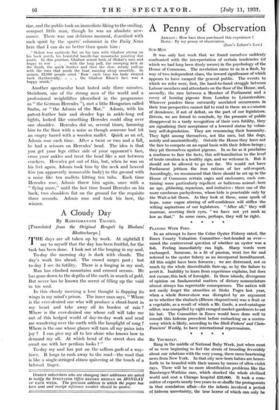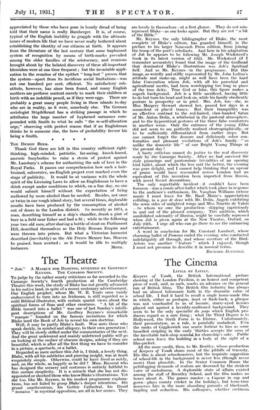BE YOURSELF.
Bang in the middle of National Baby Week, just when most of us were beginning to feel the strain of brooding feverishly about our relations with the very young, there came heartening news from New York. In that city new-born babies are hence- forth to be branded with their names by means of ultra-violet rays. There will be no more identification problems like the Bamberger-Watkins ease, which shocked the whole civilized world and cost a Chicago hospital 120,000. It took a com- mitthe of experts nearly two years to re-shuffle the protagonists in that scandalous _affair—fOr the infants involved a period of hideous uncertainty, the true horror of which can only be
appreciated by those who have gone in hourly dread of being told that their name is really Bamberger. It is of course, typical of the English inability to grapple with the ultimate issues of modern life that we have never really bothered about establishing the identity of our citizens at birth. It appears from the literature of the last century that some haphazard system of recognition by means of birth-marks prevailed among the older families of the aristocracy, and reunions brought about by the belated discovery of these all-important blemishes were at one time frequent ; but the invariable appli- cation to the reunitee of the epithet " long-lost " proves that the system—apart from its invidious social limitations—was not one hundred per cent. efficient. No satisfactory sub- stitute, however, has since been found, and many English mothers are perforce content merely to mark their children at birth with an indelible pencil, as if they were eggs. There are probably a great many people living in these islands to-day who are in reality, as it were, somebody else. The German sociologist Stiipfelkraut has a striking passage in which he attributes the large number of hyphened surnames com- pounded with Smith to what he calls "the re-self-allocation urge," observing with perfect reason that if an Englishman thinks he is someone else, the laws of probability favour his being a Smith.
* * * *



































 Previous page
Previous page